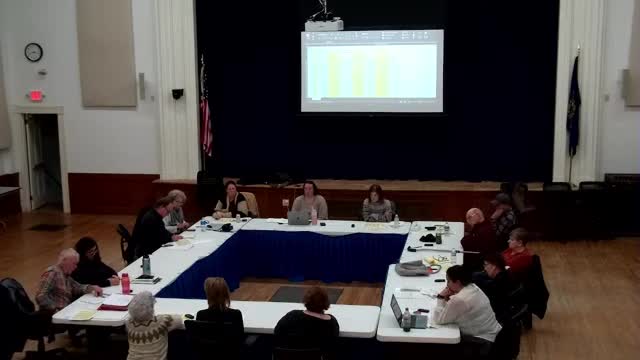Article not found
This article is no longer available. But don't worry—we've gathered other articles that discuss the same topic.

New assessing contract replaces terminated vendor; committee approves higher line to reflect new bid

Budget committee splits on wage‑matrix implementation; sets $30,000 contingency and raises town clerk salary to $104,000

Kingston police chief requests $10,000 overtime increase to cover staffing gaps; budget committee approves

